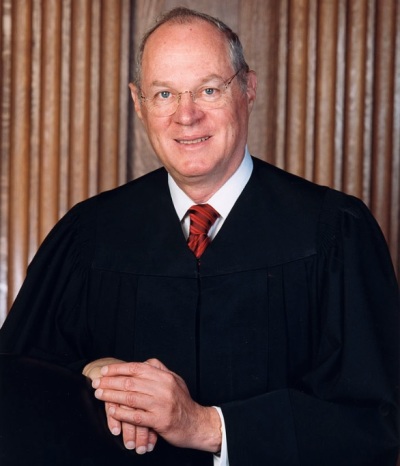What Justice Kennedy's Long Awaited Retirement Means for Life and Religious Freedom

The news from the Supreme Court keeps rolling in, and Justice Kennedy's announcement means we're looking at a long, heated summer.
Wednesday's announcement of Supreme Court Justice Anthony Kennedy's long-anticipated retirement has launched the discussion that will dominate the news for the next four or five months.
It's a discussion Christians should join. After all, there's so much at stake in who is chosen as his successor. To put it simply, the stakes are much higher with this nomination than they were with Justice Gorsuch replacing the late Antonin Scalia. In that case, the President was replacing one conservative justice with another.
But this time around, Kennedy's replacement could alter the philosophical balance on the Court. Of course, Justice Kennedy is no "liberal." He was very often the fifth vote in cases of importance to conservatives, especially in this past term where he voted with conservative justices in all fourteen 5-4 votes.
But he certainly was not conservative in his views on issues such as abortion and same-sex marriage. He, along with Justices O'Connor and Souter, authored the decision in Planned Parenthood v. Casey, which not only saved Roe but created an entirely new rationale for the right to abortion.
That now-infamous "mystery passage" stated that "At the heart of liberty is the right to define one's own concept of existence, of meaning, of the universe, and of the mystery of human life."
Four years later, in Romer v. Evans, he wrote that Colorado's Amendment 2, which prohibited state and local governments from including sexual orientation as a protected class in anti-discrimination laws, could only be based on animus toward LGBT people.
Then in 2003, in Lawrence v. Texas which overturned Texas's anti-sodomy statute, he wrote that the law "furthers no legitimate state interest which can justify its intrusion into the personal and private life of the individual."
Justice Scalia accurately prophesied at the time that this reasoning opened the door to the creation of a constitutional right to, among other things, same-sex marriage. And twelve years later, Kennedy authored the opinion in Obergefell which overturned state-level definitions of marriage and forced same-sex marriage on all fifty states.
Among other things, Kennedy's retirement and replacement puts Roe back in play, maybe even in jeopardy. Don't take my word for it. Check out the New York Times, the Washington Post, and, especially, liberal sites like Slate.
"The End of Roe" was the headline on Slate. Mark Joseph Stern, who covers law and the courts for Slate, wrote that "Soon, perhaps within the next two years, the U.S. Supreme Court will overturn Roe v. Wade."
He added that the Court might not do so officially, at least not initially, but it would chip away at Roe and eventually "allow states to outlaw abortion" altogether.
I say "Amen. From your mouth to God's ears." But to my fellow pro-lifers I quote what Han Solo said to Luke Skywalker: "Great kid. Now don't get cocky!"
You see, Stern's prediction will only happen if Kennedy's replacement is actually willing to overturn Roe. I don't want to be buzzkill but we've been down this road before. We may be closer than we've ever been, but we're not there yet.
And if the Court does overturn Roe, the issue of abortion would most likely be returned to the states. As I said a few weeks ago on BreakPoint, "That's when the political battle will begin in earnest ..."
The prospect of replacing Kennedy with someone who would overturn Roe is welcome news, but the struggle to protect human life continues. Salvation, as Chuck Colson used to say, will not arrive on Air Force One. And it won't be wearing black robes, either.
Originally posted at Breakpoint.




























